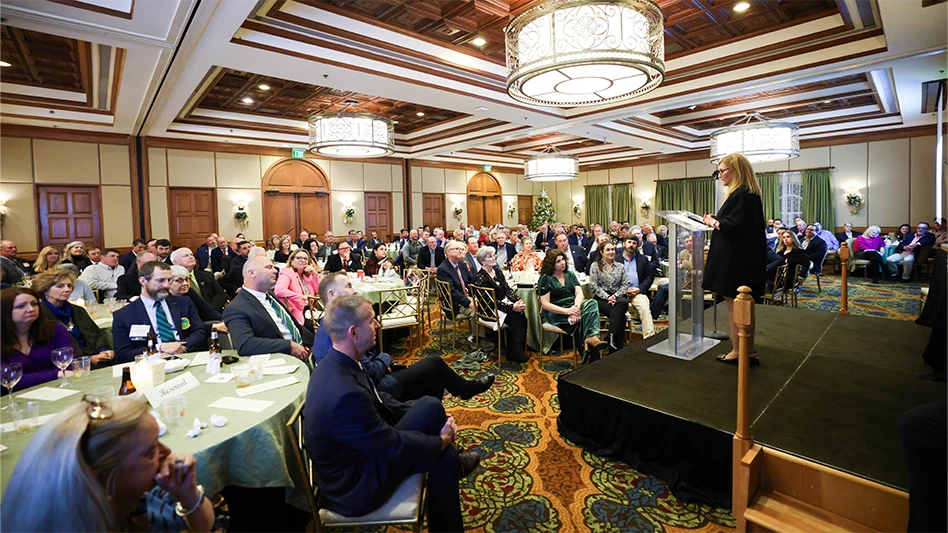It’s been 18 years since the launch of the Responsible Industry for a Sound Environment, and the founding principles of the organization are still pertinent. Perhaps more so today, than ever before, as state pesticide preemption is seriously being threatened in California.
|
|
State preemption, owning its rightful place in the green industry and an assortment of federal issues were the central topics at the 18th annual RISE meeting in Washington, D.C., appropriately themed “No Red, No Blue, Just Green States – owning our rightful place in the green movement.”
As an industry and an association, RISE is at a critical juncture and a true tipping point, according to RISE President Allen James. While the association and its volunteer committees previously functioned through a defense-oriented approach, its new strategic position calls for both defensive and proactive performance in three key areas: member relations, government relations and public relations. As such, RISE will add capacity – internal and external resources – to publicly and proactively voice its intentions.
“It’s the best route to assuring our future,” James said. “It’s a requirement for the continued growth of RISE. We need to reach out proactively to legislators, regulators and others who are making negative decisions against our industry.”
Termed its “Big Audacious Goal,” the new initiative came to fruition as a result of broad societal and economic changes. Sadly, those changes are reflected in science and fact taking a back seat to emotion and public opinion.
“The activists are emboldened by Canada (product bans) and sustainability. We must have the will and the desire to withstand the (activist) onslaught to maintain our place in the green movement,” James said. “Our righteous cause must not be taken away. Protect our right to exist. Own, once again, our rightful place in the green movement. Reassert the essential value of our products in protecting a healthy and vital environment from the consequences of ineffective pest control or ineffective plant management.”
|
|
This new goal is an overarching objective spanning over RISE’s core purpose of promoting the interests of companies engaged in the production and marketing of specialty pesticides and plant health products. “It’s not just timely but necessary based on the critical contributions our products mean to public health,” James said. The public campaign will be guided by strategic opinion research to be conducted in this winter.
“Public perception is that our industry is not part of the green movement,” echoed Dan Rosenbaum of FMC. “Don’t let others define our role. We’ll end up on the losing end particularly at the state and federal level.
And losing the preemption battle in California – which will more than likely be revisited in 2009 – would be alarming. As a bellwether state, failure to protect preemption will have a domino effect in other states such as New York, Wisconsin, Florida and other “hot-bed” states. Forty-one states currently have pesticide preemption laws; while 15 states have fertilizer preemption.
The defense of preemption isn’t the only task at hand for the specialty pesticide industry. Regardless which party wins the White House, the industry will see and work with a much different EPA. The EPA is supporting greener products and pesticides are generally regarded as the antithesis of sustainability.
David Crow, RISE lobbyist, said he doesn’t remember a more dicey or scary time for the pesticide industry. Neither presidential candidate will leave us in the same position as the last eight years, he said. The makeup of the Congress will also dictate legislative direction on climate change, clean air act and the endangered species act. “There’s a risk of antipesticide and antifertilizer amendments being added to any piece of legislation.”
|
|
In response to growing activism at the state and local levels, RISE successfully developed a grassroots program in 2006 designed to engage local operators quickly in an effort to defend threats at the municipal level. Local legislation often pops up under the radar and is passed before industry has time to react. More than 600 people agree to participate. The goal is 1,000.
“Our grassroots participants provide real-time support for activities at the local level,” said Karen Reardon, RISE director of communications. “We’re winning by inches and increments.”
RISE and its staff actively tracked 450 state pesticide bills in 2008. Additionally, it defeated 35 of 36 fertilizer bills. Key federal bills revolve around water, children’s health, Endangered Species Act and the farm bill.
|
|
The meeting included a bit of sentimentality as RISE members said goodbye to former director of government affairs, Frank Gasperini, who recently became the executive vice president of the National Council of Agricultural Employers in Washington D.C.
A moment of silence was also held to recognize Allen Haws, a long-time Bayer executive and founding member of RISE, who passed away in July.
Latest from Golf Course Industry
- Advanced Turf Solutions and The Aquatrols Company release soil surfactant
- Heritage Golf Group acquires North Carolina courses
- Editor’s notebook: Green Start Academy 2024
- USGA focuses on inclusion, sustainability in 2024
- Greens with Envy 65: Carolina on our mind
- Five Iron Golf expands into Minnesota
- Global sports group 54 invests in Turfgrass
- Hawaii's Mauna Kea Golf Course announces reopening









